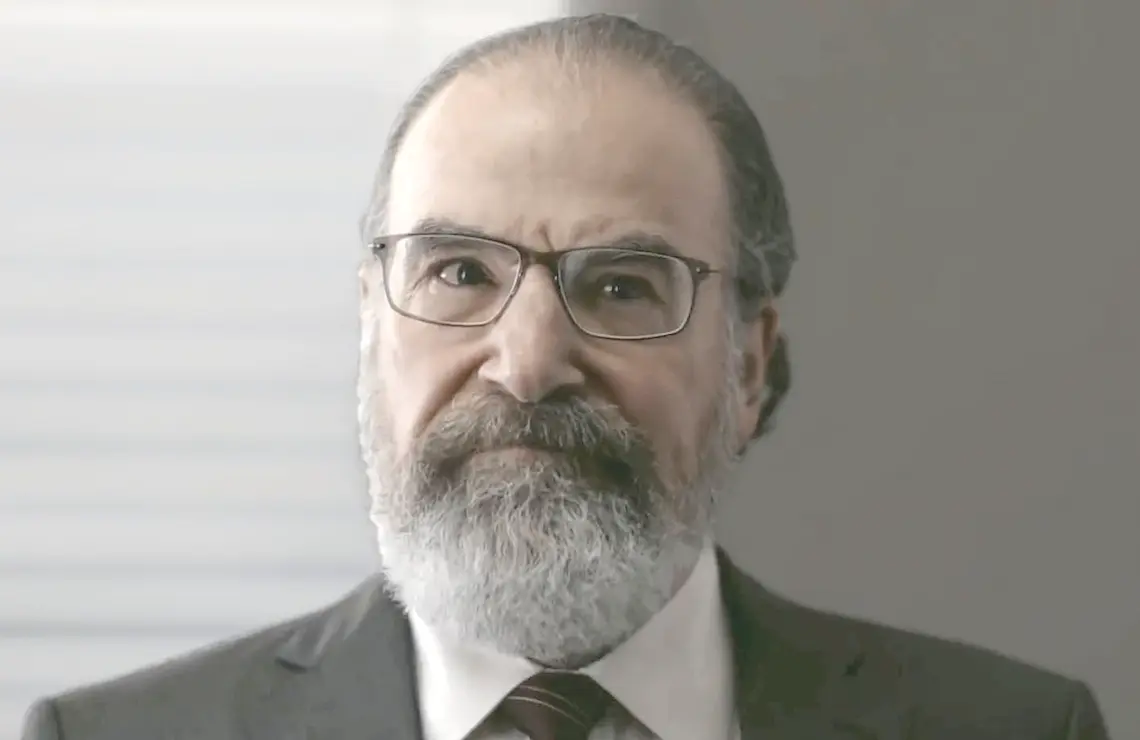Homeland's Saul Berenson, We Think We'll Miss You Most of All
-
 Mandy Patinkin as Saul Berenson in Homeland. (Showtime)
Mandy Patinkin as Saul Berenson in Homeland. (Showtime)As an actor, Mandy Patinkin can get loud. Just listen to him belt out tunes on Letterman and the original cast recording of Evita, or lustily seek out his father's murderer in The Princess Bride. Even on Homeland, where he's played Saul Berenson for the last eight seasons, he's had several occasions to get bombastic in the pursuit of global justice.
But when we think about Homeland — which airs its final episode on Showtime this Sunday, April 26 — it's not Patinkin's vehemence that comes to mind. It's his ability to make quiet fortitude so compelling.
While Claire Danes' legendary performance as Carrie Mathison has been defined by explosive passion, intelligence, and even mania, Patinkin's has been just as crucial for being the opposite. Behind his glasses and bushy beard, he finds the power in stillness, in watchfulness, in thinking before he speaks. He always communicates Saul's empathy and sense of moral purpose, but he does it less with bluster than with his total focus on the actor he's talking to and with his economy of physical movement. He makes Saul the type of person you turn to in a crisis, because you can tell, just by the way he's assessing the scene, that he's not going to lose it.
And season after season, Saul has proven he deserves to be trusted. That's been crucial not only for Carrie, but also for viewers. All these years of crooked presidents, amoral governments, and disastrous global conflicts would have been nearly unbearable without a character like Saul, who manages to retain (and even expand) his power within the system without ever losing his decency. Just like Carrie's ingenuity and investigative genius, his commitment to what's right gives Homeland a sense of hope. The world may be going to hell, but as long as Saul is out there working on our behalf, we just might make it through.
The show's creators obviously understand this, which is why we're heading into the series finale with the prospect that Carrie will have to betray Saul in order to prevent World War III. The greater good they've both been fighting for may be best served by their — or at least his — destruction. That's just the kind of tragic irony that Saul might brood over as he stares across a desert expanse in the Middle East, pondering the inner peace that peacekeepers themselves must often sacrifice in order to do their jobs.
No matter what happens in Homeland's final moments, Saul deserves to remembered as one of modern TV's most satisfying portraits of goodness. It's become cliche to consider antiheroes as a the linchpin of TV drama, and in its first few seasons, Homeland itself was part of that trend, with Carrie and Brody's morally dubious relationship driving three whole seasons. Since then, however, the bond between Carrie and Saul has anchored the series, with Saul's rectitude often being highlighted.
That trajectory surely has something to with Mandy Patinkin himself. He's spoken about his disdain for the violence on his previous series Criminal Minds, calling Homeland the “antidote" because it asks ethical questions about violent behavior. He's also chastised himself for his arrogant antics on the set of Chicago Hope. In other words, he seems to approach his own life with the same thoughtfulness that Saul brings to his work. (Patinkin also seems like a pretty great guy who obviously loves his wife and gets excited when an interview is interrupted with good news.)
With any luck, Saul will make it out of Homeland alive and Patinkin will finally win an Emmy for playing him (after four previous nominations). But the best result of all would be a surge in characters on other shows who, like Saul, prove the dramatic power of decency.
People are talking about Homeland in our forums. Join the conversation.
Mark Blankenship has been writing about arts and culture for twenty years, with bylines in The New York Times, Variety, Vulture, Fortune, and many others. You can hear him on the pop music podcast Mark and Sarah Talk About Songs.
TOPICS: Homeland, Showtime, Claire Danes, Mandy Patinkin